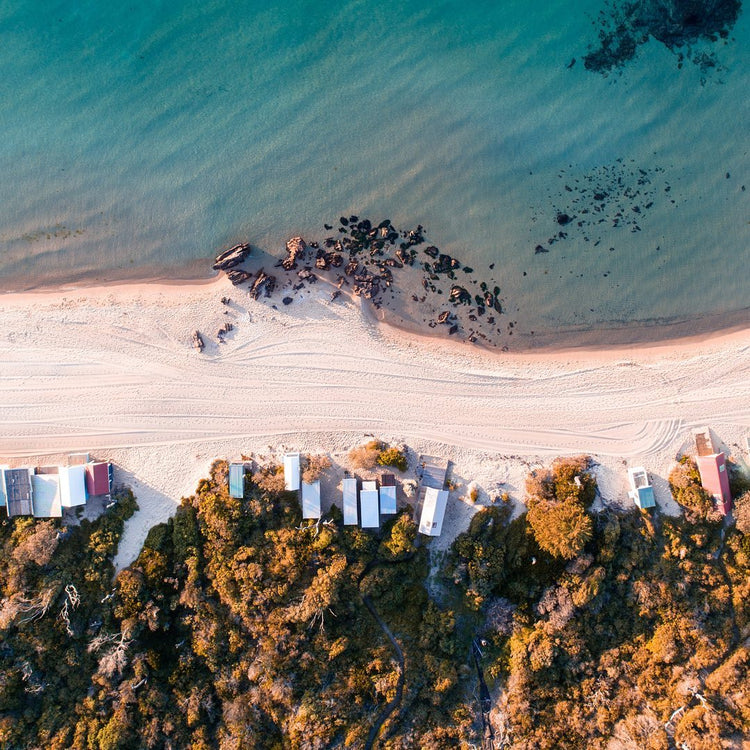What are Anjali Mats made of?
Natural Rubber
Both of our mats have a base layer of natural tree rubber from the rubber tree (Hevea Brasiliensis). The liquid latex is tapped by hand, from the trunk of the tree. This process does not harm the tree, which continues to benefit the environment. The rubber in our mats comes from established South East Asian plantations. Natural rubber is non-toxic, biodegradable and can be recycled many times.
Cork
Cork comes from the bark of the cork oak tree. The bark is removed by hand every 9 years, a method that has been used for hundreds of years. The removal of bark does not harm the tree which can live for 300 years or more, it simply grows more bark. Amazingly, the harvested cork tree produces 3-5 times as much CO2 as a non-harvested tree, providing positive benefits to our planet.
Every bit of the bark is used, even the cork dust, which is compressed into biomass for fuel. Cork can also be easily recycled and because it is a natural material it will biodegrade without problems.
Cork is a wonderful surface for a yoga mat because it has natural anti-microbial properties, making it extremely hygienic. The grip also increases when wet, making it perfect for sweaty practices. In addition, it provides a firm cushioned surface which is always a pleasant temperature. Our cork is heat bonded to the layer of natural rubber, making it free of any glues.
Jute
Jute is the natural fibre that comes from the stems of the jute plant. It is considered to be a highly ecological and sustainable material. It can be grown without the need for pesticides and fertilizers and it produces a large yield in a rapid time. In addition, the plant absorbs large quantities of CO2 from the atmosphere and is grown with water from naturally occurring monsoons.
We consider jute to be a perfect surface for a yoga mat because like cork it has natural anti-bacterial properties which help to keep it free from germs. It is also anti-static and has low thermal conductivity which helps to keep the mat a pleasant temperature. The roughness of the jute fibres add grip to the mat. The jute is heat bonded to the rubber and is free of glue and other chemicals.
Eco-Suede
The suede fabric topping on our eco-suede mats is made from recycled plastic bottles. Since plastic takes hundreds of years to decompose we are fully supportive of recycling initiatives. The resulting fabric is beautifully soft.
Where are Anjali Mats made?
Our cork, jute and eco-suede mats are designed in Australia but are currently manufactured overseas, the cork and eco-suede in China and the jute mat in Taiwan. The Ayurvedic cotton mats are hand woven in India.
Why are Anjali Mats Better than other Eco-friendly mats?
Many yoga mats on the market today are labelled as being eco-friendly. Some of these mats are made using the following materials:
PER (Polymer Environmental Resin) – this is a substance that starts out as PVC but has plasticisers and stabilisers added to it.It is quite hard to find information on PER, but our take is that it might be less harmful than PVC is, but is possibly still toxic.It also makes no claims to be biodegradable. We think we can do better.TPE (Thermoplastic Elastomer) – this substance is a mixture of rubber and plastic.The term thermoplastic elastomer is rather vague and could mean many things, but the bottom line is that TPE is a blend of synthetic materials that are not disclosed, not studied, and not proven safe.EVA (Ethylene-Vinyl Acetate) –made from non-renewable petrochemicals. EVA is generally considered safe but it takes hundreds of years to decompose in landfill, so for that reason we don’t like it.
Anjali cork and jute mats are made of natural plant materials that are non toxic and completely biodegradable. They are free of dyes and glues, friendly to the earth and to your body. Our new micro-suede mats are made with natural rubber and recycled plastic bottles.
My new cork mat feels a bit slippery, what can I do?
If you have purchased an Anjali cork mat and found it to be a bit slippery, we recommend you spray it with a little water where your hands and feet go - the moisture will provide extra grip. Once you start to work up a sweat there shouldn't be a problem. And once you have 'broken your mat in' after a few sessions you will probably find you no longer need to wet it. Similarly the micro-suede mat can be sprayed with a little water should you need it.
How do I care for my Anjali Yoga Mat?
Roll the mat so the cork is on the outside and avoid folding or creasing the mat. Wipe clean with a damp cloth. A small amount of soap can be used periodically. Leave the mat out to dry before rolling and don't leave out in direct sunlight. Avoid exposing your mat to extremes of temperature to ensure it has a long lifespan.
To clean, wipe your mat with a damp cloth and leave to air dry, avoid getting too wet. Most commercially available natural organic yoga mat cleaners should be fine but we recommend you test them out on a small section of your mat first. Alternatively, you can make your own cleaning spray with a cup of water and one or two drops of tea tree or lavender essential oil. Avoid leaving in sun for prolonged periods and avoid exposing your mat to extreme temperatures.
Wipe with a damp cloth and leave to air dry. A small amount of gentle soap can be used if the mat is very dirty. Avoid direct sunlight which can degrade the rubber and fade the colour.
Do you offer a discount if I wish to buy several mats for my studio?
Absolutely! Just send us a message with your requirements and we'll be happy to work with you.
How often should I replace my yoga mat?
Yoga mats do wear out – like shoes and clothes do. The lifespan obviously depends on how often it’s used, how intense your practise is, how the mat is cared for, how and what it is cleaned with, what climate you live in, what the floor surface you’re putting the mat on is (what is the floor surface cleaned with) etc. We have also chosen to only sell mats that are made from biodegradable plant based materials which are a lot less harmful to the planet than many of the PVC/plastic alternatives, so although robust we don’t expect these mats to last forever.
For signs that your mat might need replacing read this article.
Can't find what you're looking for?
Send us an email to tell us what's up and someone from our Customer Service team will get back to you as soon as possible. Be sure to include your order number (if you have one).
Please email us at info@anjaligeneration.com.au
Other inquiries? Let's chat.
Please email us at info@anjaligeneration.com.au


